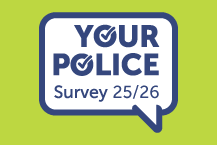Banking Protocol prevents nearly £7 million of fraudulent transactions
In the last financial year (April 2019 – March 2020) £6.85 million of fraudulent transactions were prevented in Scotland by the Banking Protocol - a partnership between Police Scotland, the finance industry and Trading Standards.
To date in this financial year (April – August) the protocol has also stopped almost 200 members of the public losing more than £1 million.
Due to the lockdown, which has prevented people going to their banks, there has been a decrease of around 50% in the number of incidents reported in this financial year compared to same period in 2019. Now, as people are being able to return to the High Street, the opportunities for the fraudsters will increase and Police Scotland officers are urging the public to be vigilant.
Police Scotland’s Assistant Chief Constable, Angela McLaren, said: “We remain committed to working with our partners to protect people from becoming victims of fraud. Unfortunately, fraudsters will seek every opportunity to exploit anyone they perceive to be susceptible and who they can forge a controlling, exploitative relationship through fear, intimidation or false promises.”
“If you suspect you, or someone you know, has been the victim of finance fraud you should contact Police Scotland via 101, or in an emergency 999.”
The Banking Protocol in Scotland was launched in March 2018 and has seen bank staff being trained to spot the signs of a customer who may have fallen victim to a scam or who may be about to. Staff look out for customers seeking to move large sums of money to a new account, an overseas account or making unusual transactions while in the branch. The staff member can alert police and speak to the customer.
In February this year, a man in his 70s from Dalkeith, went to the local branch of his bank to withdraw £6,000 to pay for work being carried out on a wall. The bank staff grew suspicious and contacted police through the Banking Protocol procedure. Police Scotland officers attended and liaised with the man before taking him home, where they were met with two other men. Trading Standards arranged for work to be assessed which revealed that what had been carried out was of sub-standard and should have cost no more than £1,500.00. Both men carrying out the work were then arrested and charged with attempted fraud. Effective implementation of the protocol and partnership working between the bank, Police Scotland and Trading Standards ensured no money was lost.
In July 2019 an 86-year-old woman went to the local branch of her bank in Dunfermline and requested to transfer £13,500 to an unknown account. The protocol was implemented after bank staff became wary. Enquiries revealed that the woman had received a telephone call from a man claiming to be from the bank’s fraud department, who had advised her that her account had been compromised and she should transfer the money to a ‘safe account’. Due to the diligence of the bank staff and the intervention of Police Scotland officers the money was not transferred and the woman provided with appropriate prevention advice.
In January 2020, a woman aged in her 50s went to her bank in Aberdeen and requested to transfer £10,000 to an account in Malaysia which drew the suspicions of staff who invoked the protocol. Further enquiries revealed that the woman was in a relationship with a man who claimed to work at sea and had requested she transfer the money to an unknown account to pay for items to be returned to the UK. The woman had wanted to take out a loan for this amount. She was advised by bank staff and Police Scotland officers that this was actually a scam and she was provided with appropriate advice. Enquiries to trace the man are ongoing.
Figures show that between 1 April – 17 July 2020 190 fraudulent transactions detected and stopped, preventing the loss of £1,169,479.
In the financial year April 2019 – March 2020 1140 fraudulent incidents detected and stopped, preventing the loss of £6, 850,000.






